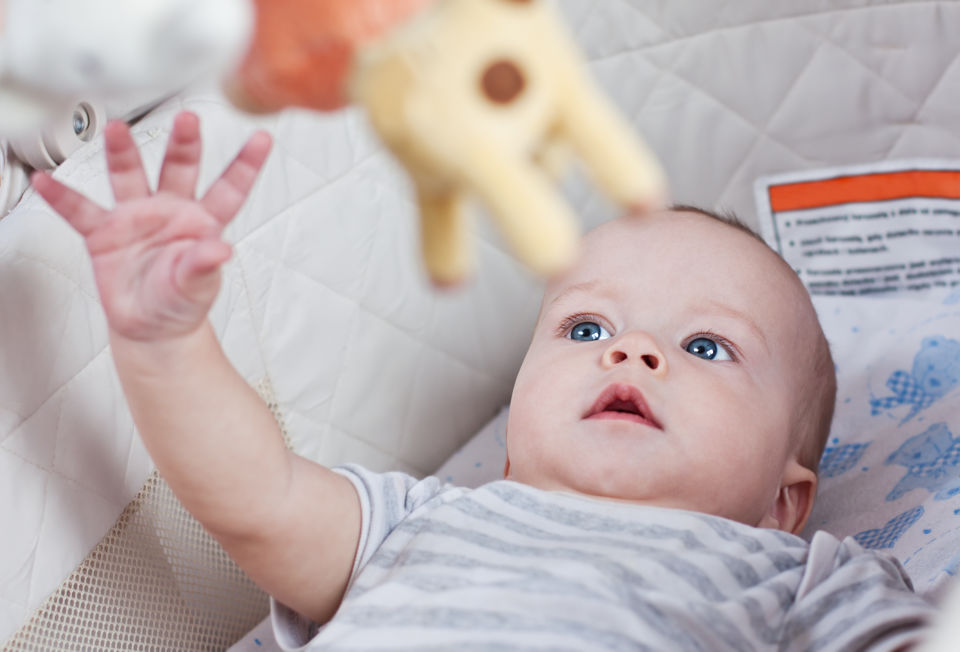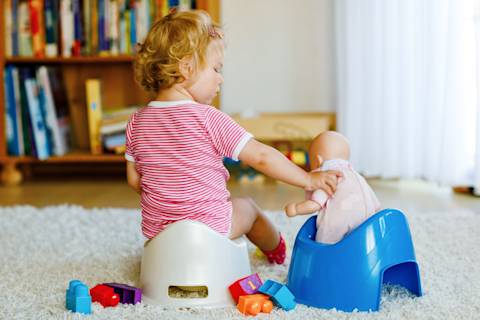Your newborn’s brain is developing with every activity. Yes, there is more going on than just eating and sleeping! Here are some specific things to look for at this stage in his or her development.
You have the power to help your baby’s brain grow! Your baby’s brain began developing during pregnancy and has not stopped. The first 30 days of a baby’s life are a critical period for brain development. So although a brain is built over time, its primary foundations are developed very early in life. While many factors influence brain development, your regular interactions have the biggest impact—and they include talking, reading, and singing.
Observing your child as they explore their environment gives a valuable glimpse into their developmental progress. These behaviors are signs of healthy growth in areas such as sensory processing, motor skills, and early cognitive abilities. Here are some key things to look for:
Visual tracking of an object 8 inches away from his or her face (side-to-side, up-down, and in circles)
Turning his or her head or eyes to explore one or more things in the environment
Looking at things for 3 or more seconds
Listening to different sounds (makes an expression in reaction to the sound, searches for the sound, etc.)
Moving his or her body or face to get something off of it
Paying attention to his or her own hands
Mouthing objects—anything and everything!
Shaking, squeezing, chewing, looking at, and reaching for objects
Waving his or her arms or legs
It's perfectly normal if your baby achieves some developmental milestones later on. Milestones are just guidelines, and it's normal for babies to reach them at different paces.

Your gentle care and interaction can make a world of difference in your baby’s first month. Here are some ways you can foster their development in a compassionate, nurturing way:
Spending quality time with your baby to strengthen your connection
Looking into your baby's eyes and smiling to help create emotional bonds
Giving your baby age-appropriate toys and activities to play with, like teething rings and toys, cloth books, and soft blocks
Encouraging tummy time, offering help as needed
Giving gentle massages to help your baby relax and allow time to bond
Using skin-to-skin contact to help support brain and emotional growth
Letting your baby feel different textures and saying the word of the texture (smooth, soft, rough, etc.)
If you are dropping him or her off at childcare or a babysitter, telling your baby goodbye and that you will be back
Remember, your baby explores the world in their unique way, and sometimes this means repeatedly dropping toys or knocking down blocks. Turn toy-dropping or block-knocking into a fun activity by picking up and returning the items to your baby. While this might feel challenging, it’s an important part of their learning and growth. Your patience and encouragement can transform these moments into valuable experiences that support their development and your bond.
Being a new parent can bring a mix of emotions, including joy, love, and sometimes worry. If you notice any unusual behavior or developmental delays, you can consult your healthcare professional for guidance and reassurance. Some signs to look out for could be things like if your baby:
Is crying often and it’s worrying you
Is sleeping more than usual
Isn’t feeding well
Isn’t moving his or her arms or legs
Isn’t responding to bright lights
Isn’t making gurgling sounds
Isn’t reacting to loud noises or turning toward sounds
Remember, every baby is unique. However, trust your instincts as a parent or caregiver if you feel something might be off. Catching potential issues early allows for timely support and intervention.






